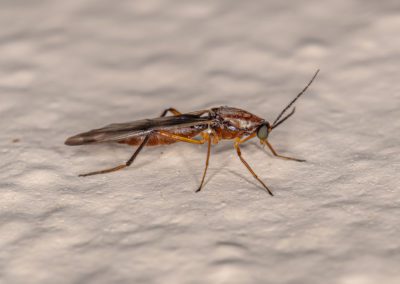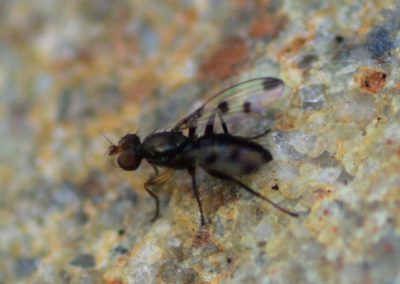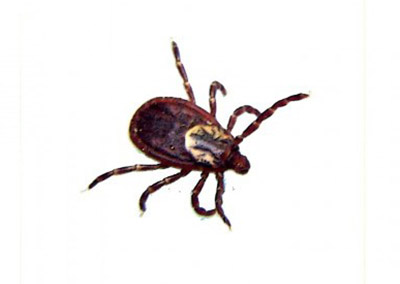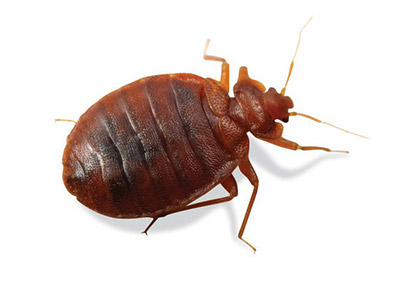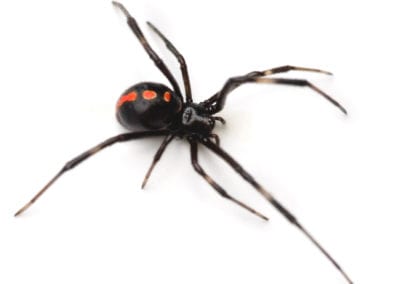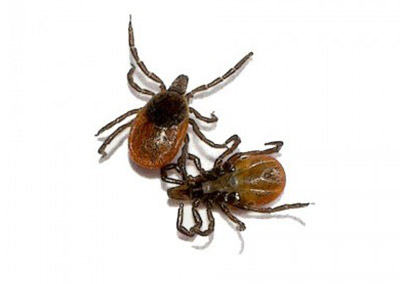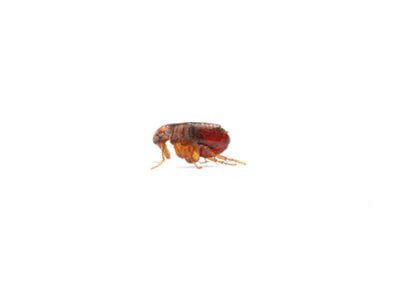Biting Midge
Our remedy for biting midge control
There are several species of midges in our geographic area. Not all of them are biting midges. For information about swarms of midges, check out our Midge Pest Library page.
The biting midge has similar piercing mouthparts as the mosquito. Our mosquito prevention service works great for other outdoor biting pests as well. Stay protected against tiny biting flies, like the biting midge, while spending time outdoors. Insect repellents containing DEET, Picaridin, or oil of Eucalyptus Lemon are highly recommended.
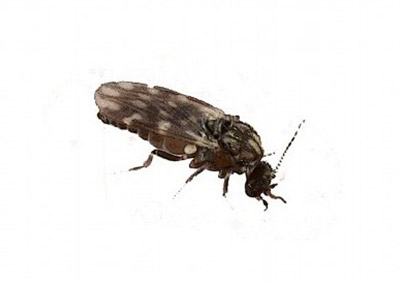
How to Identify a Biting Midge
Appearance
Biting midges are very tiny flies with distinct patterned wings, ranging from 1-3 mm in size. They have piercing, spiny mouth parts that will lacerate skin and cause irritation. Biting midges appear gray or reddish brown when filled with blood.
Other Facts
The biting midge is known to be a biting pest that can spread diseases and harm humans, livestock, pets, and wildlife.
- Also called “no-see-ums” and “punkies”
- Their bites can cause mosquito bite-like reactions or small red marks on the skin
- Tend to bite at certain times of the day, when the sun is going down
- Insect repellents containing DEET, Picaridin, or oil of Lemon Eucalyptus are highly recommended to protect yourself from getting bitten by one of these biting pests since they are public health risks
- In backyards and on farms, control methods similar to an application for mosquito control may take place to protect yourself, your pets and where applicable, livestock from potential disease threats.
Is This Your Critter?
Maybe it is, maybe it isn’t. We can handle the identification and get you a solution to your problem quickly.
Get a remedy now. Send a message!
Not Your Insect?
Here are some of the other biting insects found in the Midwest.

“…and concluded without a doubt that my son’s room is bedbug-free”
“Mike was extremely professional, thorough and friendly! He made sure to inspect all areas where bedbugs might be…and concluded without a doubt that my son’s room is bedbug-free.
He also provided his diagnosis on what might have been “biting” my son and believes it is dust mites. He recommended a cleaning course of action to address.
Thank you! Rose Pest Solutions accomplished in just a few hours after I called them today what Terminix hasn’t been able to do in four days of no-shows and India call-center scheduling snafus!
I highly recommend Rose Pest Solutions!“
Bob M. | Homeowner
Mundelein, IL
Safe For Your Family and Business
We’re licensed, trained, and certified by the Departments of Public Health and Agriculture, using safe, EPA-regulated materials, always.
Attacking Infestations at the Root
We don’t come in spraying. We evaluate the root of your problem, and recommend and enact pre-emptive measures before any chemicals are used.
Assessments Before Any Contracts
Our Customer Care Center walks you through every service, every charge, and every solution before you agree to anything. Our commitment is to you.

